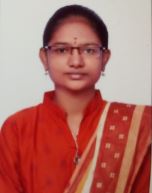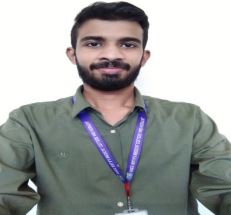Vision
To be a premiere in Biomedical Engineering field by imparting technical knowledge and nurture talents with strong research focus towards betterment of healthy nation.
Mission
- To provide quality education in Biomedical Engineering by effective teaching learning process and inculcating value-based education.
- To incorporate collaborative research with institution, hospitals and health care industry to bring out leadership and professionalism.
- Encourage to explore innovative ideas to create enabling technologies to improve healthcare technologies.
- Exhibit societal and ethical values, teamwork spirit, multidisciplinary approach for successful careers globally, as entrepreneurs and to engage in lifelong learning.
Programme Educational Objectives (PEOs)
PROGRAMME EDUCATIONAL OBJECTIVES (PEOs)
PEO 1: Engaged in professional practice as biomedical engineers/related positions in industry, academia, hospital and government sectors.
PEO 2: Continuing towards professional development in biomedical engineering or other related fields by successfully engaging in post graduate education, scientific research, entrepreneurship throughout their careers.
PEO 3: Utilizing Engineering knowledge in creating innovative solutions or enabling technologies for the betterment of healthcare society
PEO 4: Exhibiting leadership and decision-making skills with societal and ethical responsibilities to function in multi-disciplinary settings
Programme Outcomes (POs) & Programme Specific Outcomes(PSOs)
PROGRAM OUTCOME (PO)
PO1: Engineering knowledge: Apply the knowledge of mathematics, science, engineering fundamentals, and an engineering specialization to the solution of complex engineering problems.
PO2: Problem analysis: Identify, formulate, research literature, and analyze complex engineering problems reaching substantiated conclusions using first principles of mathematics, natural sciences, and engineering sciences.
PO3: Design/development of solutions: Design solutions for complex engineering problems and design system components or processes that meet the specified needs with appropriate consideration for the public health and safety, and the cultural, societal, and environmental considerations.
PO4: Conduct investigations of complex problems: Use research-based knowledge and research methods including design of experiments, analysis and interpretation of data, and synthesis of the information to provide valid conclusions.
PO5: Modern tool usage: Create, select, and apply appropriate techniques, resources, and modern engineering and IT tools including prediction and modeling to complex engineering activities with an understanding of the limitations.
PO6: The engineer and society: Apply reasoning informed by the contextual knowledge to assess societal, health, safety, legal and cultural issues and the consequent responsibilities relevant to the professional engineering practice.
PO7: Environment and sustainability: Understand the impact of the professional engineering solutions in societal and environmental contexts, and demonstrate the knowledge of, and need for sustainable development.
PO8: : Ethics: Apply ethical principles and commit to professional ethics and responsibilities and norms of the engineering practice.
PO9: : Individual and team work: Function effectively as an individual, and as a member or leader in diverse teams, and in multidisciplinary settings.
P10: : Communication: Communicate effectively on complex engineering activities with the engineering community and with society at large, such as, being able to comprehend and write effective reports and design documentation, make effective presentations, and give and receive clearinstructions.
P11: : Project management and finance: Demonstrate knowledge and understanding of the engineering and management principles and apply these to one‘s own work, as a member and leader in a team, to manage projects and in multidisciplinary environments.
P12: : Life-long learning: Recognize the need for, and have the preparation and ability to engage in independent and life-long learning in the broadest context of technological change.
PROGRAMME SPECIFIC OUTCOME (PSO)
PSO1: To examine, interpret, recognize and resolve challenges through acquired knowledge, skills, values to draw conclusions in multidisciplinary fields.
PSO2: To design, develop and Evaluate innovative solutions to meet healthcare needs and committed with ethical values for well-being of healthy society
Curriculum & Syllabus – Regulation 2022
CURRICULUM & SYLLABUS
MINIMUM CREDITS TO BE EARNED: 170
| Category | Course Title | Lecture | Tutorial | Practical | Credits | CA | SEE | Total |
|---|---|---|---|---|---|---|---|---|
| HSC | English | 2 | - | - | 2 | 40 | 60 | 100 |
| BSC | Physics (Oscillation, Waves and Optics) | 3 | - | - | 3 | 40 | 60 | 100 |
| BSC | Mathematics – I (Calculus and Linear Algebra) | 3 | 1 | - | 4 | 40 | 60 | 100 |
| ESC | Basic Electrical Engineering | 3 | - | - | 3 | 40 | 60 | 100 |
| ESC | Engineering Graphics & Design | 1 | - | 4 | 3 | 40 | 60 | 100 |
| HSC | English Laboratory | - | - | 2 | 1 | 40 | 60 | 100 |
| BSC | Physics Laboratory | - | - | 2 | 1 | 40 | 60 | 100 |
| ESC | Basic Electrical and Electronics Engineering Laboratory | - | - | 2 | 1 | 40 | 60 | 100 |
| MC | Constitution of India | 2 | - | - | - | 100 | ||
| MC | Student Induction Program | - | - | - | - | - | - | - |
| Total | 14 | 1 | 10 | 18 |
Eligibility Criteria
| Criteria for Merit | Eligibility | Criteria for Merit | |
|---|---|---|---|
| B.E. Bio Medical Engineering | 4 Years (8 Semesters) | "First Year: Passed 10+2 examination with Physics/ Mathematics/ Chemistry/ Computer Science/ Electronics/ Information Technology/ Biology/ Informatics Practices/ Biotechnology/ Technical Vocational subject/ Agriculture/ Engineering Graphics/ Business Studies/ Entrepreneurship as per table 8.4 Agriculture stream (for Agriculture Engineering) Obtained at least 45% marks (40% marks in case of candidates belonging to reserved category) in the above subjects taken together. OR Passed D.Voc. Stream in the same or allied sector. (The Universities will offer suitable bridge courses such as Mathematics, Physics, Engineering drawing, etc., for the students coming from diverse backgrounds to prepare Level playing field and desired learning outcomes of the programme) Lateral Entry (to Second Year) Passed Minimum THREE years / TWO years (Lateral Entry) Diploma examination with at least 45% marks (40% marks in case of candidates belonging to reserved category) in ANY branch of Engineering and Technology. OR Passed B.Sc. Degree from a recognized University as defined by UGC, with at least 45% marks (40% marks in case of candidates belonging to reserved category) and passed 10+2 examination with Mathematics as a subject. OR Passed B.Voc/3-year D.Voc. Stream in the same or allied sector. (The Universities will offer suitable bridge courses such as Mathematics, Physics, Engineering drawing, etc., for the students coming from diverse backgrounds to achieve desired learning outcomes of the programme)" | "Merit based on Vels Entrance Examination and percentage of mark secured in the qualifying examination" |
Career Prospects
CAREER PROSPECTS
- Manufacturing engineer
- Quality Engineer
- Software Engineer
- Medical coder
- Clinical Engineer
- Medical Technology Developer
- Biomaterials developer
- Quality engineer
- Senior medical writer
- Biomedical Engineers
- Procurement engineers
- Professors : Colleges, universities, and professional schools; state, local, and private
- Biomedical scientist / researcher
- Sales and service Engineer
Alumni Testimonials

“The academic experience with a Great Infrastructure and excellent faculty at Vels University has endured me with a lifelong career excellence. The exceptional programmes and teaching methodologies backed by practical skills and industry interface have given me the confidence to pursue my career ahead. The all-time support and motivation of the faculty members of my department has enlightened me throughout the beautiful journey. I was placed in Atrium Medical Technologies (Chennai) as Quality & Assurance Engineer (Medical Critical Care Instruments)”.
Ms.S.Sharika (B.E Biomedical Engineering), 2015-19
South Regional Manager, BMIC Imaging Pvt Ltd, Chennai

“My B.E Biomedical Engineering Degree with Vels University was one of the best experiences of my life. My Degree at Vels brought clarity of thought, knowledge, confidence, courage and conviction to me and my goals. Real time exposure of Healthcare as immense throughout the program. Faculty contributes significantly to your knowledge base at Vels. It made me realized that learning environment makes it different, so is the case of Vels School of Engineering. Through campus, I got placed at Laerdal Medial India Pvt Ltd, dream company of many Medical Engineering aspirants. Thanks to my Vels University. I owe my success to “Vels” and presently feel of proud of being alumni of Biomedical Engineering”.
Farheen (B.E Biomedical Engineering), 2015-19
Sales and Service Engineer, Laerdal Medicals, Chennai

Being a part of new beginnings is always special and so is my journey in Healthcare as it kicked off along with VISTAS – “Founders Batch” of B.E Biomedical Engineering. Looking back, I can certainly say that VISTAS was the most important milestone in shaping my career. B.E Biomedical Engineering provides an innovative course design, best in class faculty from industry and hands on experience from various training (especially Hospital visits). Throughout the academic sessions, I was challenged to discover capabilities that I never knew I had. Along with academics, the University focuses on personality development which helped me build a rewarding career.
Mr.T.J.Kowshick (B.E Biomedical Engineering), 2015-19
Clinical Engineer – Masters in Professional Engineering in Biomedical Engineering, University of Sydney, Australia.

“My experience at Vels University has meant career advancement to a highly responsible and challenging position in a leading-edge Medical Device Company in the India. Along with that goes an increased sense of self-esteem and a feeling of accomplishment and personal satisfaction. I found welcoming classmates, engaged faculty, and a built-in community in Vels University. I really enjoyed the teacher-student feedback, the contents of the courses and the teaching framework offered. At Vels everything is possibly done to make the students life high-quality learning focussed. The quality of the professors gives it a high academic level with their strong industry experience and abilities. Vels with its Biomedical Engineering program provides you with the keys to success in Health care Engineering Sector!”. I got placed in ICON Clinical Research India Pvt Ltd, Chennai – as Clinical Engineer.
Ms.Jeyanthi (B.E Biomedical Engineering), 2016-20
ICON International Pvt Ltd, Chennai

Getting into Engineering was by profession, Servicing in medical industry was my passion. Right from the beginning at VISTAS, I had been actively involved in exploring my potential. From reviving student chapters of Technical societies in college to managing National Level fest of the University, I have always gone where there is no path and left a trail for others to follow with touch of creativity, and for all this grooming and learning, I express my gratitude to my Alma Mater. Following my passion, I pursued studies in the field of Biomedical Engineering, I have come a long way in a short span of time with pearls of wisdom I gathered at VISTAS.
Mr.MohammedRezwan (B.E Biomedical Engineering), 2017-21
Biomedical Engineer, SreeBalaji Medical College and Hospital, Chromepet, Chennai
Fee Structure
| Tuition Fee 2024 - 2025 (Per Sem) | Other Fee (Per Sem) | Total Fee 2024 - 2025 (Per Sem) |
|---|---|---|
| 42,000 | 33,000 | 75,000 |
 CHAT WITH A STUDENT
CHAT WITH A STUDENT